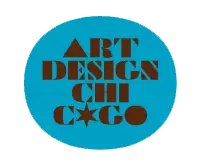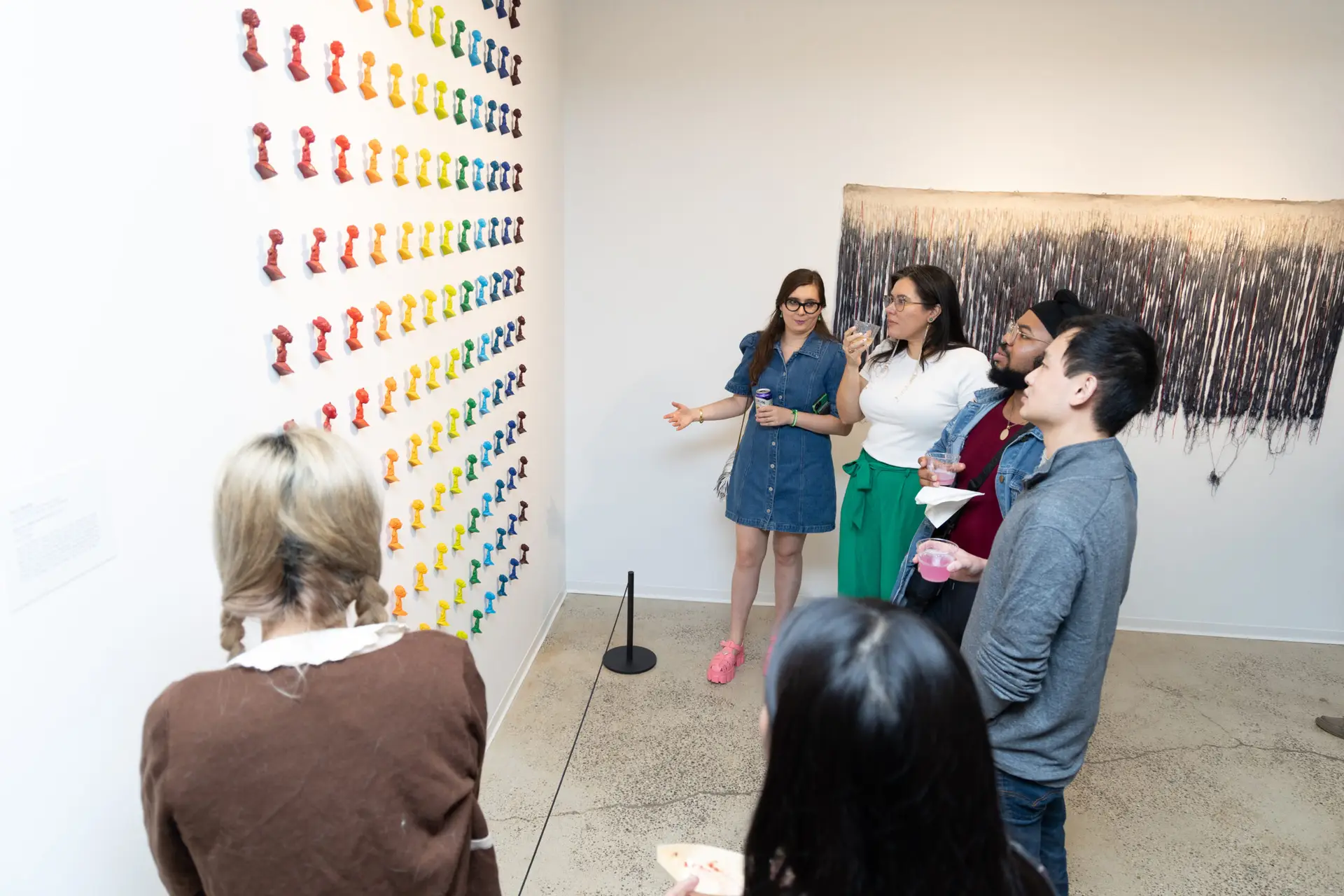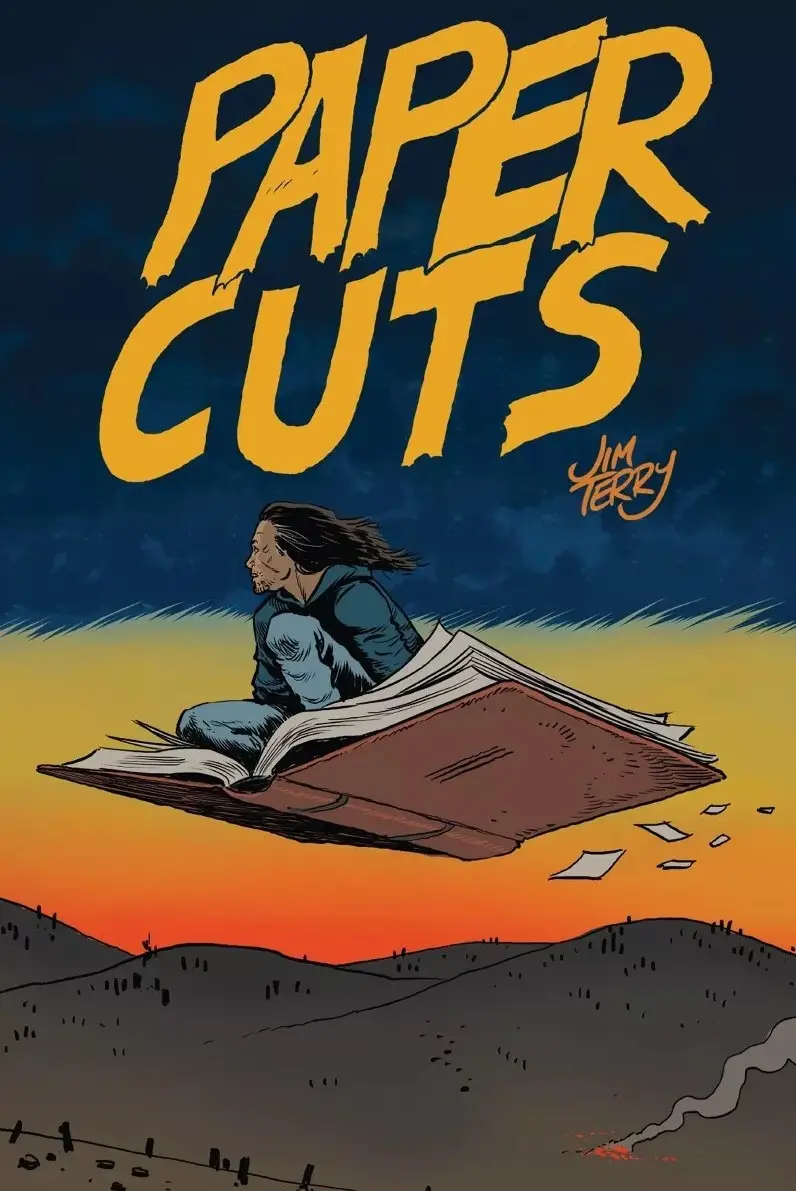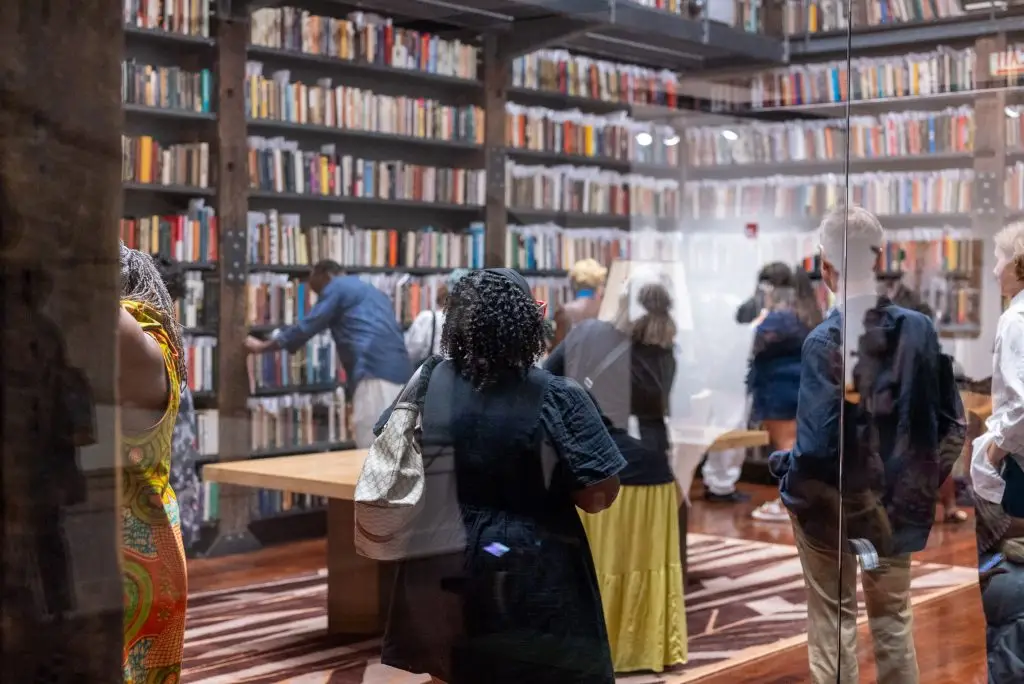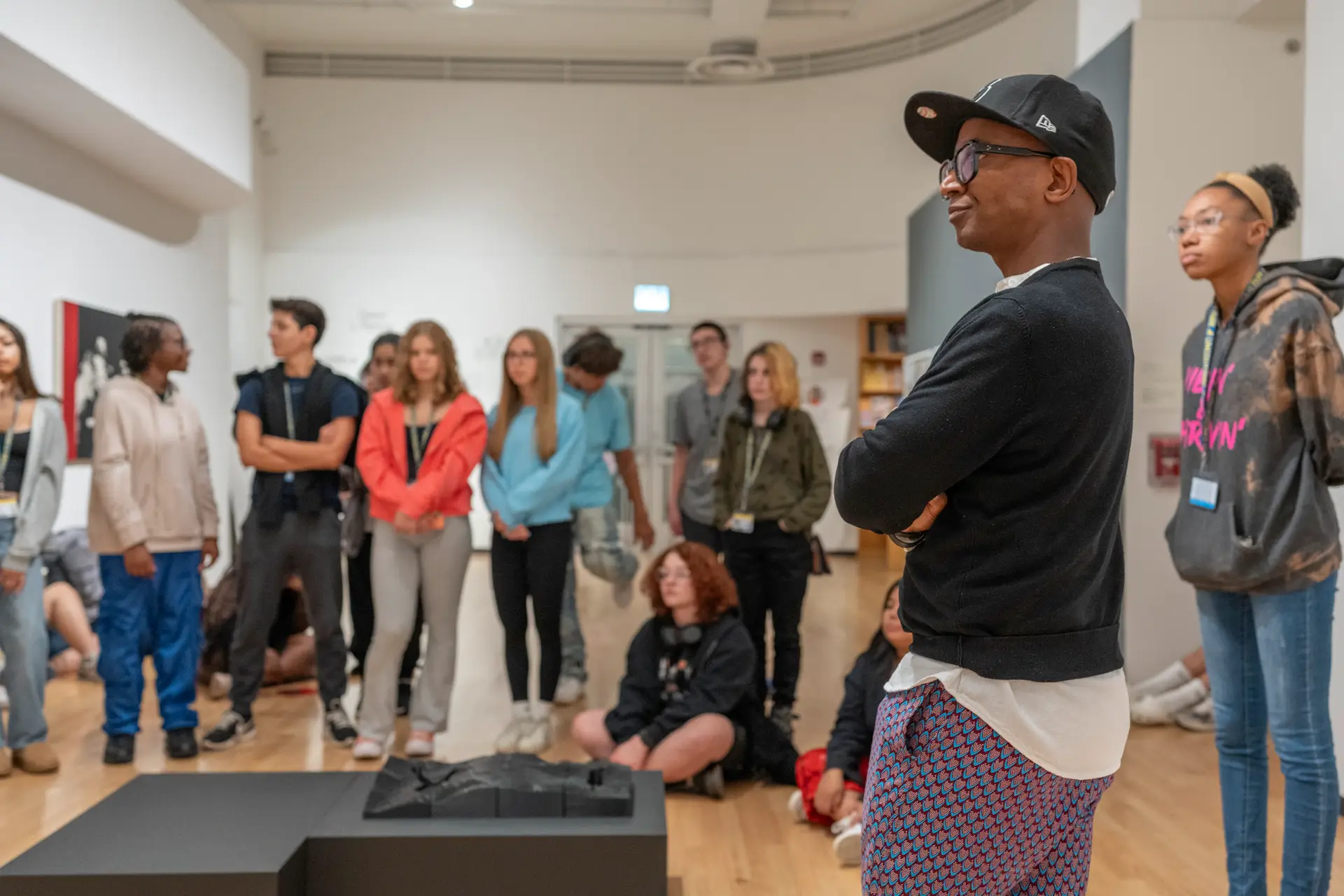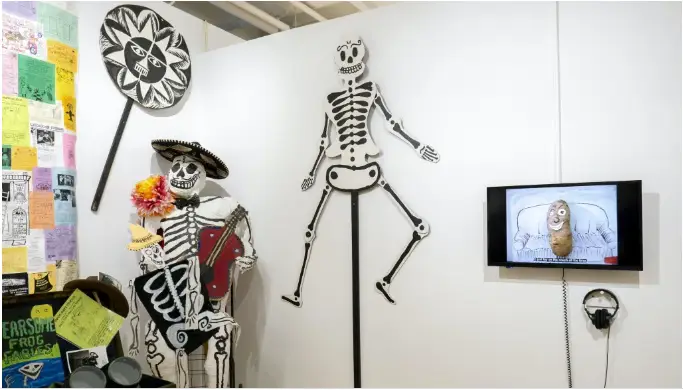Showing up and supporting Native-led spaces is fundamental to broadening understandings of American Art. On a gloomy Saturday, September 16, 2023, in the Marquette Building (56 W. Adams St., Chicago) there was cheerful energy to be found at Center for Native Futures (CfNF), a dynamic contemporary art space dedicated to Native artists in the city of Zhegagoynak (Chicago). CfNF serves as Zhegagoynak’s only all-Native artist-operated fine arts organization. A crowd gathered to celebrate the opening of the Center’s inaugural exhibition Native Futures, which is presented as part of Art Design Chicago, supported by the Terra Foundation for American Art.
Featured at the opening reception was a musical performance by award-winning Sicangu Lakota rapper Frank Waln and catering by Menominee Indian Tribe member Chef Jessica Walks First of Ketapanen Kitchen. The gallery is showing more than a dozen established and emerging Native artists of the Great Lakes region through May 17, 2024, in Native Futures. The exhibition asks artists to envision a different future, and the responding contemporary artists include CfNF co-founders and artists Debra Yepa-Pappan, Monica Rickert-Bolter, and Chris Pappan, as well as artists Noelle Garcia, Kelly Church, Jason Wesaw, Tom Jones, Holly Wilson, John Hitchcock, Camille Billie, June Carpenter, Codak Smith, Le’Ana Asher, Dakota Mace, Ji Hae Yepa-Pappan, Chelsea Big Horn, Lydia Cheshewalla, Hattie Lee, X, and TIES poets.
Sharon Corwin, Terra Foundation for American Art President & CEO, recognizes the importance of this organization and its work. The foundation has provided support in the form of seed funding for organizational development and programming grants for CfNF’s inaugural exhibitions and Mound Summit. Corwin shared that it started with questioning definitions of American art and asking whose voices, what stories, and which artworks have not been fully included.
The Terra Foundation’s investment in the Center for Native Futures aligns with the foundation’s core work—to encourage transformative practices that expand narratives of American art. “CfNF presents a new model for the field for supporting Native artists on their terms. The impact of their extraordinary efforts is already being felt in Chicago and beyond,” added Corwin.
CfNF Co-founder Debra Yepa-Pappan recalled being an emerging artist looking for opportunities where she could show her work only to find fine art galleries here in the city that had intimidating processes. Acknowledging that institutions need to embrace different ways of thinking, the Terra Foundation engaged in a series of conversations, starting in 2020, with CfNF’s co-founders that laid the groundwork for an ongoing and long-term partnership. “It’s important to be in dialogue, in partnership, and in relationship with the communities that you want to be working with.You have to build trust, you have to earn trust, and you have to be willing to sit and get to know each other—be willing to learn about each other—it starts there,” said Corwin.
Yepa-Pappan had a long-held, shared dream with other Natives to cultivate a safer art experience for Native people. “It was a dream of ours just to have our own space, to have our own facility where we can just create and show our own work, and [with] other Native artists coming along,” she shared. “We met other Native artists that had started to move to Chicago, and we needed to do something. Anytime I was in conversation with other Native artists, I would share this dream with them.”
“Then there was a moment, I think in 2017, when Monica Rickert-Bolter and I thought, ‘Why don’t we just try to plan something? Let’s start talking. Let’s start dreaming this, and let’s look at how we can make it a reality.’ But then, again, it had to be put on the backburner and it wasn’t really until the pandemic and after other relationships formed that we decided ‘let’s do this!’ So, really, it took a few decades of conversations and just finding the right people.”
The Center for Native Futures is possible because Native people decided it was time to reclaim the land in which we have been creating art since before colonization. CfNF’s co-founders are artists and writers, including Yepa-Pappan (Jemez Pueblo), Chris Pappan (Kanza/Osage/Lakota), Monica Rickert-Bolter (Potawatomi), Andrea Carlson (Ojibwe), Patrick Del Percio (Cherokee descent), and River Kerstetter (Wisconsin Oneida), all of whom have revitalized their own cultural practices to keep specific art forms alive and adapted to incorporate more modern materials and styles.
“Indigenous Futurism isn’t only limited to science fiction; through art, we’re turning visions into reality. I feel like what we’re doing here is trying to realize our future as opposed to just imagining it. We’re living it, we’re realizing it, we’re going to create that future because we are going to be a part of the future,” shared Yepa-Pappan.
CfNF is free and open to the public. They invite visitors of all ages to come in and experience the artwork, share a meal or laugh together as a way of healing, and they encourage your support with prioritization given to co-creating a safer art experience for Natives of different backgrounds and biracial identities.
When dreaming of the future of Center For Native Futures, Director of Operations and Co-founder Monica Rickert-Bolter said she would love to see the gallery expand or be a model for other initiatives that can hopefully grow to collaborate with CfNF. “People need to trust that we’re going to know what to do, how to prepare, how to represent Native people, particularly in the Midwest. You don’t have to silo us to just Native Heritage Month. Keep us around all year!” expressed Rickert-Botler. “We want people to come here and enjoy our work and take us seriously as fine artists. We’re not just here to help with a land acknowledgement,” adds Yepa-Pappan.
CfNF was made possible through seed funding and program support from the Terra Foundation, in-kind support from the MacArthur Foundation, which houses their gallery, and contributed capital funds. “Chicago’s funding community is recognizing the importance of this work,” said Corwin. “We’re encouraged to see foundation’s coming together to support them.”
Native Futures is presented as part of Art Design Chicago, an initiative of the Terra Foundation for American Art that seeks to expand narratives of American art with an emphasis on the city’s diverse and vibrant creative cultures and the stories they tell. CfNF is open Wednesday through Friday from 11 a.m. to 4 p.m.
ABOUT THE AUTHOR

Luz Magdaleno Flores
Luz Magdaleno Flores is the bilingual editor for Sixty Inches From Center, a writer of both poetry and arts coverage, and a photographer. She is also known as DJ Light of Your Vida. @lightofyourvida

